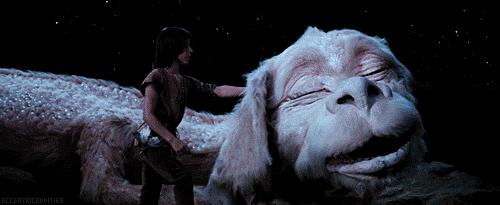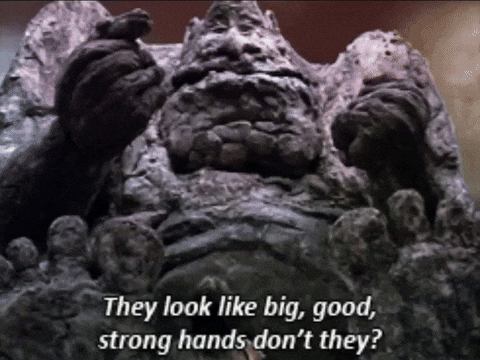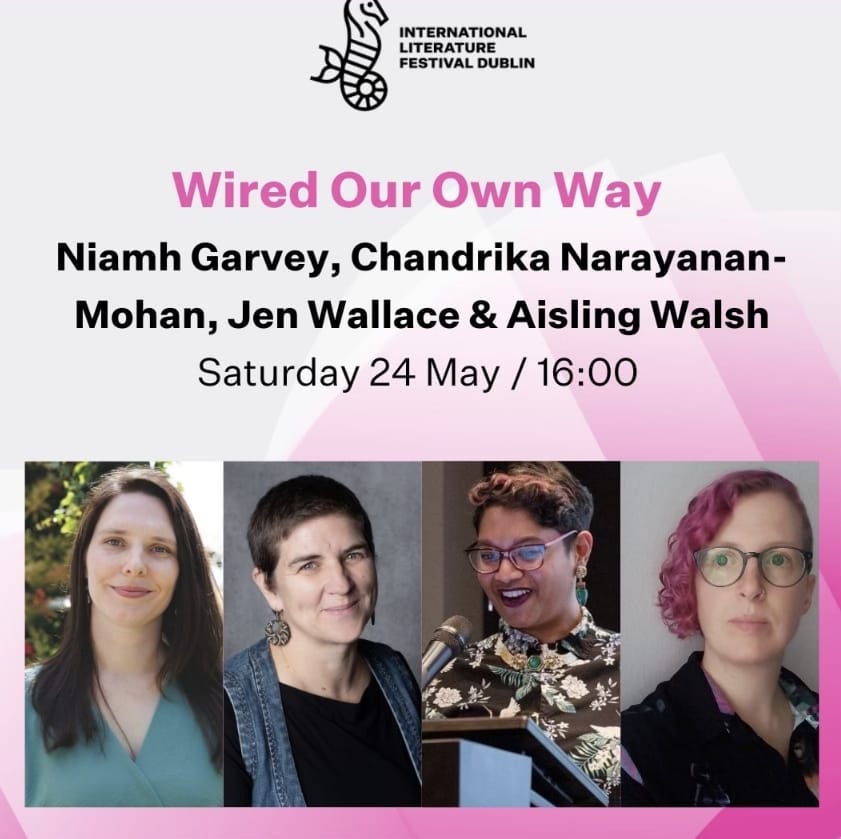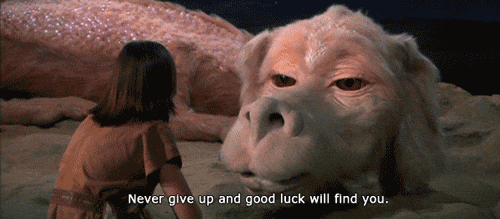In the Beginning, it is Always Dark
I'm back from my hiatus with musings on The NeverEnding Story, reading as escapism and The Nothing of 2025!
I once said to my mother I didn’t want to grow up because adult books are so boring. She rolled her eyes in response, as if this was a ridiculous thing for a child to worry about. Surely, she must have thought, I would find adult books to suit my adult interests. She was right, of course—though I would have preferred if she hadn’t made me feel so stupid for expressing this worry. I have found many novels and memoirs that speak to the joys and sorrows of existing in this world. Right now, I’m in a pirate phase and there are lots of recently published novels about women on the high seas full of adventure and a heavy dollop of queerness.
Welcome to AutCasts, a free newsletter exploring neurodivergence through cinema’s oddballs, misfits & rebels!
At the same time, my ten year old self who worried about the lack of magic and imagination in adult fiction was not that far off the mark. Children’s books demand a suspension of belief, radical empathy and leaps of imagination, something I rarely find in adult novels except for novels firmly within the genres of speculative fiction (a genre I adore, where Octavia E. Butler is queen) or the most compelling historical fiction (where Toni Morrison is queen and also often speculative). There are other things to be gleaned from the world of adult writing but this complete departure from our known reality, the ability to give oneself up to the logics and fantasies of another world, feels particularly special to childhood.
When I crave a hint of that immersive, all consuming, emotional and imaginative experience, I sometimes allow myself to return to the worlds of Lyra Silvertongue, from His Dark Materials, or Katniss Everdeen from The Hunger Games. But I have to ration these doses, because once I dip my toe in I’m unable to do anything else and it might be days of weeks before I reemerge and, you know, get some work done. And that’s another thing often lost after childhood, the time and ability to simply lose yourself for days in a good book without having to worry about outside commitments.
The NeverEnding Story is one of the few movies I can think of which captures the magic of that immersive experience of reading as a child. Bastian, our lonesome protagonist is the archetype of shy bookish children, like me, who struggled to make and maintain friends. For kids like us the friends we found among the pages of our favourite books were just as real as living people. Bastian’s journey shows how books can bring solace, make you feel connected to a world beyond yourself, and how powerful it is to absorb a creation from someone else’s imagination and splice it with your own.
The NeverEnding Story is a profound meditation on the power of imagination and the dire consequences brought forth when the people of the world (adults especially) lose the ability to imagine, hope and empathise. When these are lost “The Nothing” moves in to take their place. And when people have no hope or empathy they “are easy to control. And whoever has the control, has the power!”
What better way to capture the urgency of the current moment, of rising racism, fascism, war, genocide and despair than The Nothing?
The NeverEnding Story is a 1984 fantasy film, co-written and directed by Wolfgang Petersen and based on the 1979 novel of the same name by Michael Ende. Bastian (Barret Oliver) is a ten-year-old boy who is grieving the loss of his mother, with a father who is emotionally unavailable and demanding and is regularly tormented by bullies at school. When trying to hide from his bullies Bastian escapes into a book shop where he discovers an ancient book called the The Never Ending Story. Intrigued by the design on the cover he smuggles the book into his schoolbag and hides in the school attic to read it. He is immediately drawn into the mythical land of Fantasia, which is facing destruction from The Nothing and desperately needs their hero, the boy Atreyu (Noah Hathaway) to save them from oblivion. As Bastian reads along with Atreus adventures he is increasingly drawn into the action until he finds he has an integral part to play in the future of Fantasia.
A hole would be something. No, it was… nothing.
Released the year I was born, so over 40 years ago now, The NeverEnding Story was like the wallpaper of my childhood, always there in the background providing a certain flavour of fantasy and action.1 A childhood favourite watched over many rainy Saturday afternoons in front of the TV in a friend’s living room, The NeverEnding Story one of those movies that was always on, just part of the scenery for so many older millennials whose childhood straddles the late 80s and early 90s.
There were the Henson-esque animatronics that had such a moment in the 1980s, life-size puppets, distorted perspective that created giants and little people, stop-motion animation and other delightful practical effects alongside early experiments with blue (green) screen. It was a movie populated almost entirely by children and they got to be heroes.
The NeverEnding Story remained a childhood favourite for so long for because of how it celebrated the power of imagination and reflected my own ability to get lost in a book. Books have, for as long as I can remember, been a way for me to escape reality, a way to self regulate in the midst of emotional turmoil, a way to lose myself in the worlds of others. Books often felt more real to me than my own life which felt frequently intolerable. Like Bastian, I could easily imagine myself into the action, pretend that the protagonists were my friends and that I too was caught up in the adventure. And in between reading I liked to imagine how I would negotiate my way through their worlds, the decisions I would make if faced with the same circumstances, and whether I would be brave enough to do what was necessary to save the world.
A despair, destroying this world…
Watching The NeverEnding Story in 2025, the most impactful aspect of the movie is the graphic characterisation of The Nothing as a storm, destroying everything in its wake and bringing an end to hope, imagination and empathy. It’s so horrific that The Rock Biter cannot find the words to properly describe it:
A hole would be something. No, it was… nothing. And it got bigger, and bigger. First there was no lake anymore, and then finally… no rocks.
Everything in Fantasia is alive, from the rocks to the plants. Perhaps because I now live in the midst of The Burren, a unique karst limestone landscape on the western edge of Ireland, I have begun to recover my childhood obsession with rocks and fossils and the way they connect us with our past. The Mayan peoples of Mesoamerica understand rocks as our oldest ancestors, living, feeling, often sacred, entities that chart the passage of time on earth. Like Atreyu, a First Nations coded character, indigenous peoples continue to find themselves defending their ancestral territories against The Nothing of mining, petroleum exploitation, palm oil plantations, hydroelectric damns and other extractive projects. They continue to hold back the worst excesses of extraction, often facing criminalisation and death for daring to do so, while the rest of us wring our hands or calculate emissions in the face of environmental destruction and climate catastrophe.
I was delighted to remember how Rock Biter, who we expect to be terrifying, is actually one of the most sympathetic characters in the whole movie. They bring the first troubled tidings of The Nothing. Rock Biter, who actively grieves for the loss of their beautiful, delicious rocks, is the perfect counterpart to Morla, The Ancient One, who’s time in the Swamps of Sadness, has distorted their wisdom into apathy.
Morla is worse than G’morck, the evil dog who pursues Atreyu across Fantasia with the aim of killing him, because they believe in nothing. When Atreyu pleads with Morla for help to face The Nothing, warning them that they will die if Atreyu fails to save Fantasia, Morla responds: ‘Die? That, at least, would be something.’ Morla’s apathy, even embrace of destruction, feels terribly prescient in a moment when the climate change deniers who run the White House seem all too willing to steer us towards oblivion. Morla is the perfect stand in for our contemporary climate doomsayers, who believe the world is already lost so there is no point doing anything. Atreyu’s hard won triumph, however, ultimately proves Morla’s apathy to be both misplaced and morally reprehensible.
We don't even care whether or not we care…
These days it’s hard to know whether we are on the brink of The Nothing or already caught up in the torment of despair. War, genocide, climate change and the accelerated rise of racism across the US and Europe are ample motives for despair. Judith Butler wrote recently for Literary Hub that: “Many young people tell me that they fear there is no future. When they ask about the future, they are also asking: what is still imaginable or for what may we still hope?” In grappling with the seeming death of hope and imagination Butler also writes that when we say “we are imagining the end of the world, or the end of the world as we have known it, we are imagining the end to imagination itself.”
And it is tempting, these days, to be like Morla and simply give in to the despair and apathy, to feel like there is nothing worth fighting for. But The NeverEnding Story asks us to follow our impulse towards justice and saving our world, by embracing the idea that something more, beyond what we can see is out there and is sustained by a particular human capacity to imagine, create and feel empathy. Bastian is struggling to navigate profound and loneliness in an uncomprehending world, but he shows us that he needs Fantasia as much as it needs him.
For the Mayans, the 2012 Baktun, the end of one long count and the beginning of another, marks the beginning of a new era in human consciousness in which all the earth’s beings, human and non-human, will be cared for and respected. The Mayans understand humanity’s current moment as the darkness before this dawn. It feels incredibly dark, perhaps even hopeless, right now but I like to think that the Mayans are right and that The Nothing of 2025 will bring the end to the world we know. But, to make that happen we have to first be able to imagine that something other than this late-capitalist nightmare of death and destruction is possible. As Judith Butler writes: “The world we have known is the world that is bound up with the movement toward greater destruction. What about a world we are yet to know?”
I feel like right now we all are Atreyu, fighting back that storm of nothingness, and it is still to be determined whether hope and imagination can win over despair.
If you liked what you read, please tap the heart 💕 below and consider subscribing (for free) or sharing this essay. As an independent writer it’s the best way to support my work!
Writing News
On Saturday, May 17th, I’ll be joining three amazing writers, Patrick Holloway, Gary Finnegan and Brian Kirk, for an emerging writers’ forum hosted by the wonderful Jennifer MacMahon. Tickets are free, so do come along!
For those of you based in Dublin I’ll also be participating at the International Literature Festival Dublin, on a panel about the best-selling anthology of Irish autistic voices, Wired Our Own Way, alongside fellow contributors, including Niamh Garvey, Jen Wallace and Chandrika Narayanan-Mohan as moderator. If you’re in or around Dublin we’d love to see you there!
I had a new article about ongoing attacks on education and scholasticide in Pal€stine, published with Science for the People Magazine. It was written almost a year ago now, but unfortunately it’s still relevant. I’m also receiver on a fundraiser for a family in G@z@ who are desperately in need of help. Doaa and I chat every few days, she has two young kids and is struggling to pay the exorbitant prices for diapers ($40 each!!) and milk. If you have anything to spare, or could reshare the fundraiser all support is appreciated. These are little things, but along with emails to my local government representatives, signing petitions and attending local protests, they are the actions I have been able to take to push back against the despair of The Nothing.
Thanks, as ever for reading, and for sticking with me through months of burn-out. I’ll be back next time with another family favourite, Toy Story, and the joy of believing your toys are sentient beings.
In the meantime why don’t you tell me what’s helping you get through the nothingness of 2025?
The NeverEnding Story is grafted so deeply into my subconscious that I celebrated my 30th birthday by getting a Never Ending Story tattoo without even realising it! I wanted the image of a snake, the symbol of my Mayan energy, but with a Celtic twist. After many, many internet searches I kept coming back to the an image of two interlocking snakes. I was informed by a friend after getting the tattoo, that this was actually the Auryn amulet that Atreyu carries throughout The Never Ending Story. I was mortified to have 1) forgotten this and 2) gotten something so clichéd. But now I’m actually kind of pleased with it. And, in an ironic twist, Noah Hathaway who played Atreyu, is now a tattoo artist who has seen and also given many Auryn tattoos!







This post would have been sheer delight just for re-immersion into The NeverEnding Story movie, which was also a lynchpin of my childhood. But the way you draw connections to [*gestures at everything horrible going on all around*] and the importance of empathy and imagination--wow. Your words have heartened me, and I need that these days.
For me (Gen X) the most meaningful scene in that movie is when Atreyu looks into the mirror that reveals his true self. He's been told that this knowledge is too frightening for most people, but instead he finds a companion and helper, Bastian, though he doesn't fully understand it at the moment.